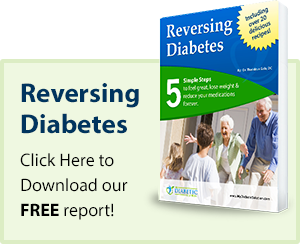Why You Should Question Your Protein Sources.

Written By Melonie Jorgensen, Health Coach and Wellness Program Director
Protein is an important part of your diet because it raises your metabolism, reduces cravings, and leaves you feeling satisfied while helping you to achieve optimum weight and blood sugar levels. The health food sections that are now in most grocery stores offer some healthy selections.
Beef is healthier for you if it is range grass fed rather than grain fed. Range or grass fed beef has a better omega 3 to omega 6 ratios. Remember that omega 3s reduce inflammation while too many omega 6’s increase inflammation. Personally over the years of healthy eating, I have found it easier and cheaper to buy locally raised grass finished beef. I buy a half beef at a time, and then store it in my freezer for easy access to healthy beef. I have established a good relationship with a local rancher who raises the beef and keeps me on her list as a permanent customer. I actually put some money aside monthly to cover this expense each year.
Chicken is also best if it is free-range as, like beef, it is much lower in fat. Their natural foraging diet of insects, wild plants, worms and the like provides a healthier ratio of omega 3s to 6s as well. Turkey breast is one of the cheapest and leanest sources of protein. Lean pork tenderloin has 28% fat compared to skinless chicken breasts at 37%. Naturally grown pork, similar to free-range chicken, is leaner also. Some clients ask me about lamb. If you can find grass fed, free-range meat, go for it.
We also recommend having fish as a regular source of protein. Some people are concerned about the levels of toxicity in wild caught fish due to the contamination in our rivers, streams and oceans. Let’s begin by talking about how important fish is to your diet. According to Dr. Loren Cordain in his book, The Paleo Diet, fish is very high in protein, low in total fat, and typically high in omega 3 fats. He explains that, “Many scientific studies have shown that regular fish consumption reduces bad LDL cholesterol and triglycerides while simultaneously increasing the good HDL cholesterol. The omega 3 fats in fish also prevent the heart from going into irregular, uncontrolled beating patterns called “arrhythmias”, which can be fatal. Fish is just plain good for you. It lowers your risk of heart attack, stroke, and type 2 diabetes. By eating fish and seafood regularly you can significantly reduce your risk of dying from the number one killer of all Americans; heart disease.”
So what about the downside of fish consumption, for example the mercury and other contaminants that have been shown to find their way into our waterways? We know that mercury poisoning can damage the brain and nervous system. Recently Dr. Phillip Davidson and his colleagues at the University of Rochester School of Medicine and Dentistry in New York conducted a nine-year study and their findings were published in the Journal of American Medical Association. Their study was conducted in an island nation in the Indian Ocean where most people eat fish a dozen times a week. These people actually showed mercury levels about ten times higher than those of most Americans. Their tests showed no harmful effects in the nervous systems of these people as well as no harmful effects in the nervous systems or behaviors of their children with mercury levels up to twenty times the average of the American level. Now I am not saying that it’s not a troubling fact that we live in a polluted world where most of us are exposed to toxic compounds. Dr. Cordain addresses this, “The greatest risk to our health is not from environmental pollutants, but from heart disease, diabetes, stroke and the associated health disorders of metabolic syndrome. Eating fish protects you not only from these diseases but from all causes of death, including cancer.” According to a study by Dr. Joseph Hibbeln of the National Institutes of health it was shown that because fish is one of our greatest sources of omega 3 fats it has been shown to help prevent depression.”
With all of this in mind let’s talk about how to make the healthiest choices when it comes to choosing the fish we consume. Avoid farm-raised fish such as tilapia, trout, salmon, carp, crayfish, shrimp and the like. This is a similar situation to feedlot cattle. They are fed soy and cereal based products. This causes them to be deficient in the healthy omega 3s. When it comes to canned fish, remember that this process removes a high percentage of the healthy vitamins that fish provides. On the rare occasions that you are eating this be sure to choose canned products that have been processed in water or olive oil. Also remember to rinse and drain off the salt before eating.
Let’s take a quick look at eggs. According to Dr. Cordain several studies have concluded that eating one egg a day has no negative effect on your blood cholesterol level and does not increase your risk of heart disease. Dr. Gala recommends that you choose omega 3 eggs. These eggs are produced when the hens are fed omega 3 enriched feeds. It has also been shown that how you prepare your eggs plays an important part as well because this influences the level of oxidized cholesterol, which can damage the cells lining your arteries, and increases your risk of heart disease. The best way to prepare your eggs is to avoid high heat like when frying eggs. Better choices are poaching, hard-boiling and baking.
The most important things I want you to take away from today’s lesson:
- Protein at every meal is important to helping you eat healthy.
- As often as possible choose leaner, grass-fed meat, and wild caught fish.
- Choose omega 3 eggs that you cook at lower temperatures.
As Dr. Gala always reminds us; Here’s to making the rest of your years the best of your years.

